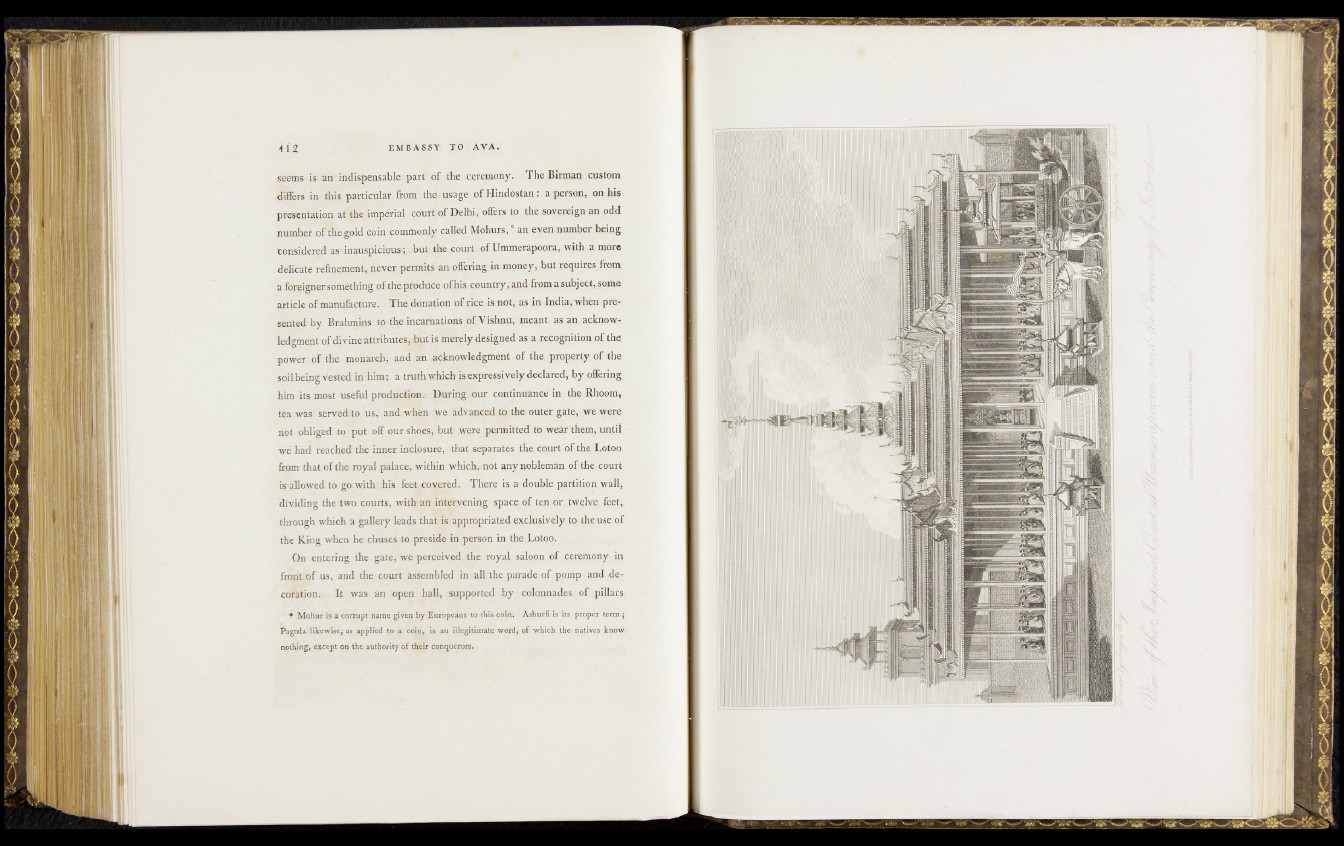
.gitfm*i t p a r t L o f ' the*.ceremony. * The Birman custom
differs in -this particular: from .thesusage of Hindostan: a.person, on his
presentation atSthe imperiah:coujrt^Of Delhi,.offers to the sovereign an pdd
number oflhe gold coin commonly called Mohurs, * an even number being
Considered as «inauspicious.; i;but- the court! of Ummerapoora,- with; a more
delicate -refinement,- never permits .amoffering in-money, but requires, frpti|
a foleighersomething d£^pfpd^ofhis.countryiand from a subject,,sqme
article of manufactureJ The donation ’of isuot, .as in India, when presented
by Brahmins tothc incarnations of Vishnu, meant as an acknowledgment
of divine attributes,-.but ismerdy designedas a recognition of the
power: of the monarch, and an acknowledgment pf thel-pmpertyofithe
soilbeing vested in him ; a truth which is expressively declared; by;offering:
him its most useful production.-; Duringiour, continuance in the Rhoomi<
tfea was: serveehtb us, .and when We advanced to the-outer g$t|:, we-were;
not: obliged to put off our shoes, but jiyere Ipermitted',tor-wear them,, uptil
weThad reached the iimer inelosufe,:: that separates the court; of the,:Lo.tap.
from that of the royal palace, within whiefrmot any nobleman oftlhe^couit.
friallowed to:go:udth his fee|aCoyered. ^here is a <£(|i4?lg;partition, waife
dividing the two courts, with-anghfetymiing space of .ten.or tweh;g;feet;,
through which a gallery leads that is appropriated exclusively to theiisc of
the King when he chuses to preside in person in;the,Lottojg.;;i; (
•; On -entering the. gate,-we perceived .-the royal, saloon ofreeS^mony in
fronC.qf us, and the court assembled in call the. parade of, pomp „ajtld.^qv
conation. It . was an open hall, supported by cplopnades - of .pillars:
| * Mohur is a corrupt name given by Europeans to this coin. Ashurfi is its proper term 5
Pagoda;likewise, as applied to a coin, is an illegitimate .word* o f which the natives know
nothing, except on the authority of their conquerors.